- Home
- Daphne Du Maurier
The Birds and Other Stories Page 25
The Birds and Other Stories Read online
Page 25
She dropped her hands to her side and closed her eyes. It was getting quite wet there on the tombstone. I was worried for her, though she had her mac of course, but her legs and feet were damp in her thin stockings and shoes.
"You weren't ever in the Air Force, were you?" she said.
Queer. Her voice had gone quite hard. Sharp, and different. Like as if she was anxious about something, scared even.
"Not me," I said, "I served my time with REME. Proper lot they were. No swank, no nonsense. You know where you are with them."
"I'm glad," she said. "You're good and kind. I'm glad."
I wondered if she'd known some fellow in the RAF who had let her down. They're a wild crowd, the ones I've come across. And I remembered the way she'd looked at the boy drinking his tea at the stall. Reflective, somehow. As if she was thinking back. I couldn't expect her not to have been around a bit, with her looks, and then brought up to play about the shelters, without parents, like she said. But I didn't want to think of her being hurt by anyone.
"Why, what's wrong with them?" I said. "What's the RAF done to you?"
"They smashed my home," she said.
"That was the Germans, not our fellows."
"It's all the same, they're killers, aren't they?" she said.
I looked down at her, lying on the tombstone, and her voice wasn't hard anymore, like when she'd asked me if I'd been in the Air Force, but it was tired, and sad, and oddly lonely, and it did something queer to my stomach, right in the pit of it, so that I wanted to do the darnedest silliest thing and take her home with me, back to where I lived with Mr. and Mrs. Thompson, and say to Mrs. Thompson--she was a kind old soul, she wouldn't mind--"Look, this is my girl. Look after her." Then I'd know she'd be safe, she'd be all right, nobody could do anything to hurt her. That was the thing I was afraid of suddenly, that someone would come along and hurt my girl.
I bent down and put my arms round her and lifted her up close.
"Listen," I said, "it's raining hard. I'm going to take you home. You'll catch your death, lying here on the wet stone."
"No," she said, her hands on my shoulders, "nobody ever sees me home. You're going back where you belong, alone."
"I won't leave you here," I said.
"Yes, that's what I want you to do. If you refuse I shall be angry. You wouldn't want that, would you?"
I stared at her, puzzled. And her face was queer in the murky old light there, whiter than before, but it was beautiful, Jesus Christ, it was beautiful. That's blasphemy. But I can't say it no other way.
"What do you want me to do?" I asked.
"I want you to go and leave me here, and not look back," she said, "like someone dreaming, sleepwalking, they call it. Go back walking through the rain. It will take you hours. It doesn't matter, you're young and strong and you've got long legs. Go back to your room, wherever it is, and get into bed, and go to sleep, and wake and have your breakfast in the morning, and go off to work, the same as you always do."
"What about you?"
"Never mind about me. Just go."
"Can I call for you at the cinema tomorrow night? Can it be like what I was telling you, you know... going steady?"
She didn't answer. She only smiled. She sat quite still, looking in my face, and then she closed her eyes and threw back her head and said, "Kiss me again, stranger."
I left her, like she said. I didn't look back. I climbed through the railings of the cemetery, out onto the road. No one seemed to be about, and the coffee stall by the bus stop had closed down, the boards were up.
I started walking the way the bus had brought us. The road was straight, going on forever. A High Street it must have been. There were shops on either side, and it was right away northeast of London, nowhere I'd ever been before. I was proper lost, but it didn't seem to matter. I felt like a sleepwalker, just as she said.
I kept thinking of her all the time. There was nothing else, only her face in front of me as I walked. They had a word for it in the army, when a girl gets a fellow that way, so he can't see straight or hear right or know what he's doing; and I thought it a lot of cock, or it only happened to drunks, and now I knew it was true and it had happened to me. I wasn't going to worry anymore about how she'd get home; she'd told me not to, and she must have lived handy, she'd never have ridden out so far else, though it was funny living such a way from her work. But maybe in time she'd tell me more, bit by bit. I wouldn't drag it from her. I had one thing fixed in my mind, and that was to pick her up the next evening from the picture palace. It was firm and set, and nothing would budge me from that. The hours in between would just be a blank for me until ten p.m. came round.
I went on walking in the rain, and presently a lorry came along and I thumbed a lift, and the driver took me a good part of the way before he had to turn left in the other direction, and so I got down and walked again, and it must have been close on three when I got home.
I would have felt bad, in an ordinary way, knocking up Mr. Thompson to let me in, and it had never happened before either, but I was all lit up inside from loving my girl, and I didn't seem to mind. He came down at last and opened the door. I had to ring several times before he heard, and there he was, gray with sleep, poor old chap, his pajamas all crumpled from the bed.
"Whatever happened to you?" he said. "We've been worried, the wife and me. We thought you'd been knocked down, run over. We came back here and found the house empty and your supper not touched."
"I went to the pictures," I said.
"The pictures?" He stared up at me, in the passageway. "The pictures stop at ten o'clock."
"I know," I said, "I went walking after that. Sorry. Goodnight."
And I climbed up the stairs to my room, leaving the old chap muttering to himself and bolting the door, and I heard Mrs. Thompson calling from her bedroom, "What is it? Is it him? Is he come home?"
I'd put them to trouble and to worry, and I ought to have gone in there and then and apologized, but I couldn't somehow, it wouldn't have come right; so I shut my door and threw off my clothes and got into bed, and it was like as if she was with me still, my girl, in the darkness.
They were a bit quiet at breakfast the next morning, Mr. and Mrs. Thompson. They didn't look at me. Mrs. Thompson gave me my kipper without a word, and he went on looking at his newspaper.
I ate my breakfast, and then I said, "I hope you had a nice evening up at Highgate?" and Mrs. Thompson, with her mouth a bit tight, she said, "Very pleasant, thank you, we were home by ten," and she gave a little sniff and poured Mr. Thompson out another cup of tea.
We went on being quiet, no one saying a word, and then Mrs. Thompson said, "Will you be in to supper this evening?" and I said, "No, I don't think so. I'm meeting a friend," and then I saw the old chap look at me over his spectacles.
"If you're going to be late," he said, "we'd best take the key for you."
Then he went on reading his paper. You could tell they were proper hurt that I didn't tell them anything, or say where I was going.
I went off to work, and we were busy at the garage that day, one job after the other came along, and any other time I wouldn't have minded. I liked a full day and often worked overtime, but today I wanted to get away before the shops closed; I hadn't thought about anything else since the idea came into my head.
It was getting on for half past four, and the boss came to me and said, "I promised the doctor he'd have his Austin this evening, I said you'd be through with it by seven-thirty. That's OK, isn't it?"
My heart sank. I'd counted on getting off early, because of what I wanted to do. Then I thought quickly that if the boss let me off now, and I went out to the shop before it closed, and came back again to do the job on the Austin, it would be all right, so I said, "I don't mind working a bit of overtime, but I'd like to slip out now, for half an hour, if you're going to be here. There's something I want to buy before the shops shut."
He told me that suited him, so I took off my overalls and washed a
nd got my coat and I went off to the line of shops down at the bottom of Haverstock Hill. I knew the one I wanted. It was a jeweler's, where Mr. Thompson used to take his clock to be repaired, and it wasn't a place where they sold trash at all, but good stuff, solid silver frames and that, and cutlery.
There were rings, of course, and a few fancy bangles, but I didn't like the look of them. All the girls in the NAAFI used to wear bangles with charms on them, quite common it was, and I went on staring in at the window and then I spotted it, right at the back.
It was a brooch. Quite small, not much bigger than your thumbnail, but with a nice blue stone on it and a pin at the back, and it was shaped like a heart. That was what got me, the shape. I stared at it a bit, and there wasn't a ticket to it, which meant it would cost a bit, but I went in and asked to have a look at it. The jeweler got it out of the window for me, and he gave it a bit of a polish and turned it this way and that, and I saw it pinned on my girl, showing up nice on her frock or her jumper, and I knew this was it.
"I'll take it," I said, and then asked him the price.
I swallowed a bit when he told me, but I took out my wallet and counted the notes, and he put the heart in a box wrapped up careful with cotton wool, and made a neat package of it, tied with fancy string. I knew I'd have to get an advance from the boss before I went off work that evening, but he was a good chap and I was certain he'd give it to me.
I stood outside the jeweler's, with the packet for my girl safe in my breast pocket, and I heard the church clock strike a quarter to five. There was time to slip down to the cinema and make sure she understood about the date for the evening, and then I'd beat it fast up the road and get back to the garage, and I'd have the Austin done by the time the doctor wanted it.
When I got to the cinema my heart was beating like a sledgehammer and I could hardly swallow. I kept picturing to myself how she'd look, standing there by the curtains going in, with the velvet jacket and the cap on the back of her head.
There was a bit of a queue outside, and I saw they'd changed the program. The poster of the western had gone, with the cowboy throwing a knife in the Indian's guts, and they had instead a lot of girls dancing, and some chap prancing in front of them with a walking stick. It was a musical.
I went in, and didn't go near the box office but looked straight to the curtains, where she'd be. There was an usherette there all right, but it wasn't her. This was a great tall girl, who looked silly in the clothes, and she was trying to do two things at once--tear off the slips of tickets as the people went past, and hang on to her torch at the same time.
I waited a moment. Perhaps they'd switched over positions and my girl had gone up to the circle. When the last lot had got in through the curtains and there was a pause and she was free, I went up to her and I said, "Excuse me, do you know where I could have a word with the other young lady?"
She looked at me. "What other young lady?"
"The one who was here last night, with copper hair," I said.
She looked at me closer then, suspicious-like.
"She hasn't shown up today," she said. "I'm taking her place."
"Not shown up?"
"No. And it's funny you should ask. You're not the only one. The police was here not long ago. They had a word with the manager, and the commissionaire too, and no one's said anything to me yet, but I think there's been trouble."
My heart beat different then. Not excited, bad. Like when someone's ill, took to hospital, sudden.
"The police?" I said. "What were they here for?"
"I told you, I don't know," she answered, "but it was something to do with her, and the manager went with them to the police station, and he hasn't come back yet. This way, please, circle on the left, stalls to the right."
I just stood there, not knowing what to do. It was like as if the floor had been knocked away from under me.
The tall girl tore another slip off a ticket and then she said to me, over her shoulder, "Was she a friend of yours?"
"Sort of," I said. I didn't know what to say.
"Well, if you ask me, she was queer in the head, and it wouldn't surprise me if she'd done away with herself and they'd found her dead. No, ice creams served in the interval, after the newsreel."
I went out and stood in the street. The queue was growing for the cheaper seats, and there were children too, talking, excited. I brushed past them and started walking up the street, and I felt sick inside, queer. Something had happened to my girl. I knew it now. That was why she had wanted to get rid of me last night, and for me not to see her home. She was going to do herself in, there in the cemetery. That's why she talked funny and looked so white, and now they'd found her, lying there on the gravestone by the railings.
If I hadn't gone away and left her she'd have been all right. If I'd stayed with her just five minutes longer, coaxing her, I'd have got her round to my way of thinking and seen her home, standing no nonsense, and she'd be at the picture palace now, showing the people to their seats.
It might be it wasn't as bad as what I feared. It might be she was found wandering, lost her memory and got picked up by the police and taken off, and then they found out where she worked and that, and now the police wanted to check up with the manager at the cinema to see if it was so. If I went down to the police station and asked them there, maybe they'd tell me what had happened, and I could say she was my girl, we were walking out, and it wouldn't matter if she didn't recognize me even, I'd stick to the story. I couldn't let down my boss, I had to get that job done on the Austin, but afterwards, when I'd finished, I could go down to the police station.
All the heart had gone out of me, and I went back to the garage hardly knowing what I was doing, and for the first time ever the smell of the place turned my stomach, the oil and the grease, and there was a chap roaring up his engine, before backing out his car, and a great cloud of smoke coming from his exhaust, filling the workshop with stink.
I went and got my overalls, and put them on, and fetched the tools, and started on the Austin, and all the time I was wondering what it was that had happened to my girl, if she was down at the police station, lost and lonely, or if she was lying somewhere... dead. I kept seeing her face all the time like it was last night.
It took me an hour and a half, not more, to get the Austin ready for the road, filled up with petrol and all, and I had her facing outwards to the street for the owner to drive out, but I was all in by then, dead tired, and the sweat pouring down my face. I had a bit of a wash and put on my coat, and I felt the package in the breast pocket. I took it out and looked at it, done so neat with the fancy ribbon, and I put it back again, and I hadn't noticed the boss come in--I was standing with my back to the door.
"Did you get what you wanted?" he said, cheerful-like and smiling.
He was a good chap, never out of temper, and we got along well.
"Yes," I said.
But I didn't want to talk about it. I told him the job was done and the Austin was ready to drive away. I went to the office with him so that he could note down the work done, and the overtime, and he offered me a cigarette from the packet lying on his desk beside the evening paper.
"I see Lady Luck won the three-thirty," he said. "I'm a couple of quid up this week."
He was entering my work in his ledger, to keep the payroll right.
"Good for you," I said.
"Only backed it for a place, like a clot," he said. "She was twenty-five to one. Still, it's all in the game."
I didn't answer. I'm not one for drinking, but I needed one bad, just then. I mopped my forehead with my handkerchief. I wished he'd get on with the figures, and say goodnight, and let me go.
"Another poor devil's had it," he said. "That's the third now in three weeks, ripped right up the guts, same as the others. He died in hospital this morning. Looks like there's a hoodoo on the RAF."
"What was it, flying jets?" I asked.
"Jets?" he said. "No, damn it, murder. Sliced up the belly, poor so
d. Don't you ever read the papers? It's the third one in three weeks, done identical, all Air Force fellows, and each time they've found 'em near a graveyard or a cemetery. I was saying just now, to that chap who came in for petrol, it's not only men who go off their rockers and turn sex maniacs, but women too. They'll get this one all right though, you see. It says in the paper they've a line on her, and expect an arrest shortly. About time too, before another poor blighter cops it."
He shut up his ledger and stuck his pencil behind his ear.
"Like a drink?" he said. "I've got a bottle of gin in the cupboard."
"No," I said, "no, thanks very much. I've... I've got a date."
"That's right," he said, smiling, "enjoy yourself."
I walked down the street and bought an evening paper. It was like what he said about the murder. They had it on the front page. They said it must have happened about two a.m. Young fellow in the Air Force, in northeast London. He had managed to stagger to a callbox and get through to the police, and they found him there on the floor of the box when they arrived.
He made a statement in the ambulance before he died. He said a girl called to him, and he followed her, and he thought it was just a bit of lovemaking--he'd seen her with another fellow drinking coffee at a stall a little while before--and he thought she'd thrown this other fellow over and had taken a fancy to him, and then she got him, he said, right in the guts.
It said in the paper that he had given the police a full description of her, and it said also that the police would be glad if the man who had been seen with the girl earlier in the evening would come forward to help in identification.
I didn't want the paper anymore. I threw it away. I walked about the streets till I was tired, and when I guessed Mr. and Mrs. Thompson had gone to bed I went home, and groped for the key they'd left on a piece of string hanging inside the letterbox, and I let myself in and went upstairs to my room.

 Jamaica Inn
Jamaica Inn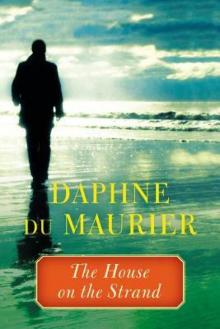 The House on the Strand
The House on the Strand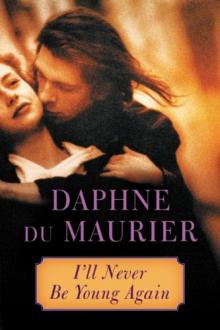 I'll Never Be Young Again
I'll Never Be Young Again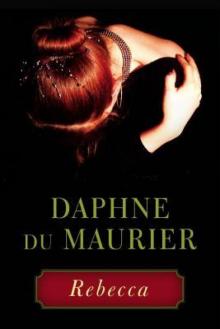 Rebecca
Rebecca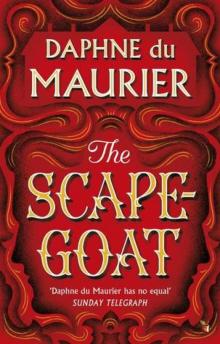 The Scapegoat
The Scapegoat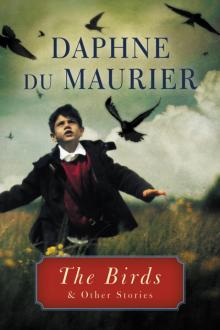 The Birds and Other Stories
The Birds and Other Stories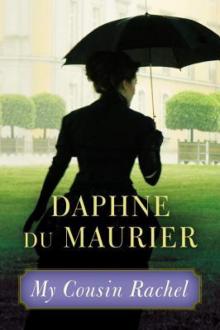 My Cousin Rachel
My Cousin Rachel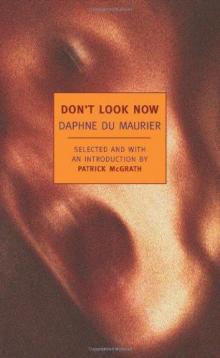 Don't Look Now
Don't Look Now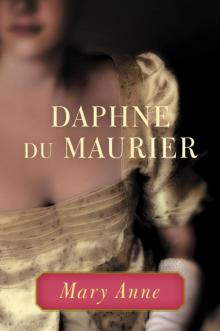 Mary Anne
Mary Anne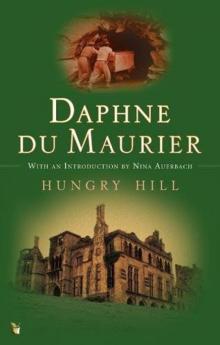 Hungry Hill
Hungry Hill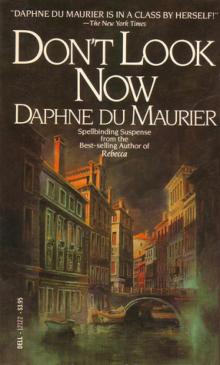 Don't Look Now and Other Stories
Don't Look Now and Other Stories The Loving Spirit
The Loving Spirit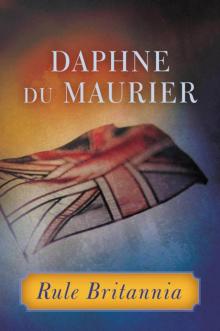 Rule Britannia
Rule Britannia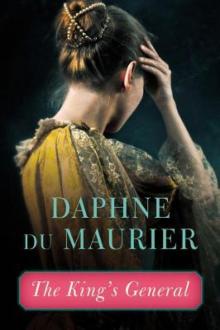 The King's General
The King's General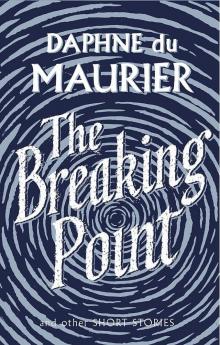 The Breaking Point: Short Stories
The Breaking Point: Short Stories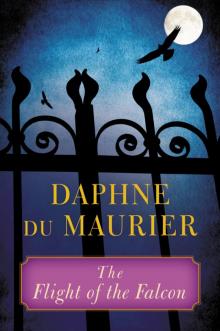 The Flight of the Falcon
The Flight of the Falcon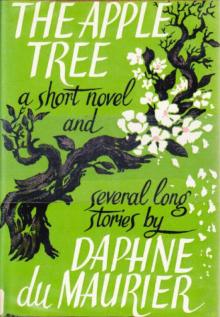 The Apple Tree: a short novel & several long stories
The Apple Tree: a short novel & several long stories The Breaking Point
The Breaking Point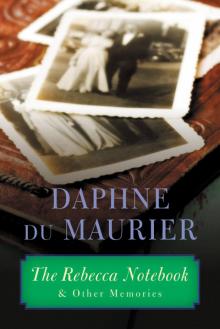 The Rebecca Notebook
The Rebecca Notebook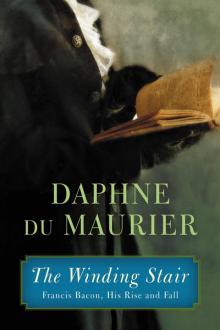 The Winding Stair: Francis Bacon, His Rise and Fall
The Winding Stair: Francis Bacon, His Rise and Fall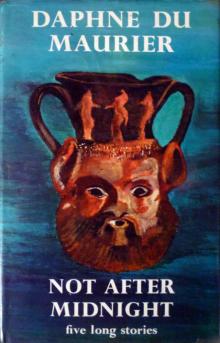 Not After Midnight & Other Stories
Not After Midnight & Other Stories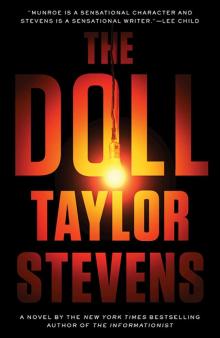 The Doll
The Doll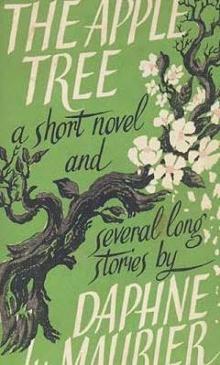 The Apple Tree
The Apple Tree